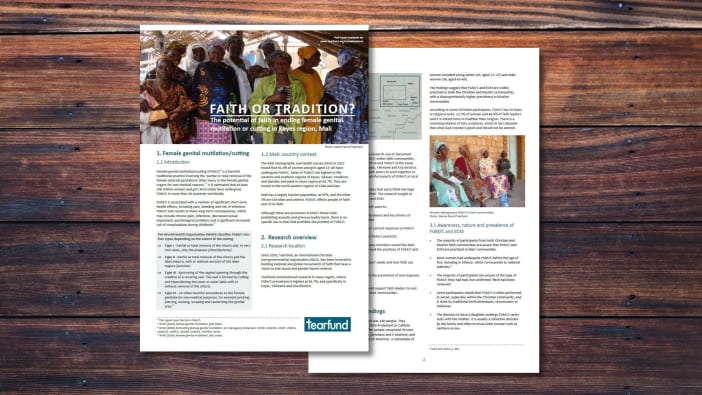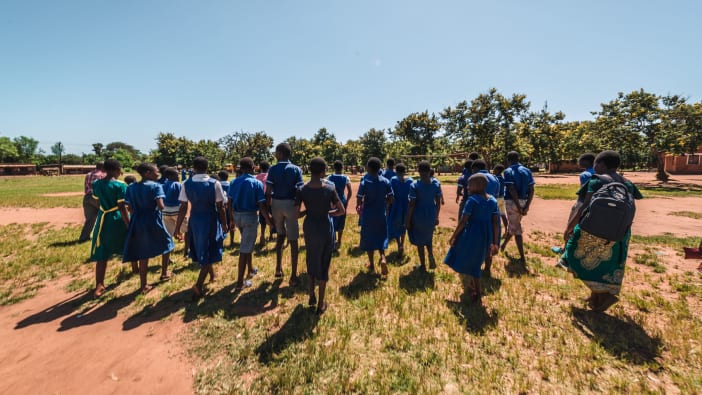Female genital mutilation (FGM) is a traditional practice in Burkina Faso and many other countries. It is sometimes called female genital cutting, female circumcision, or excision (Footsteps 24). It means cutting off part or all of the outer part of a girl’s labia and clitoris. Usually the girls are very young and have no choice in the matter.

Articles
Challenging female genital mutilation
The Government of Burkina Faso is working together with health organisations, religious leaders, NGOs, women’s associations and traditional community leaders to try to change attitudes around FGM/C
2006 Available in English, French, Portuguese and Spanish

Photo: Jim Loring
FGM is very painful and has no health benefits for women. However, despite the efforts of authorities to stop it, the practice remains. In many communities, not undergoing FGM can have negative social consequences for women, such as difficulty in finding a husband. This means there is strong social pressure to continue the practice. The reality is that FGM has many harmful consequences. Immediate effects include pain and heavy bleeding. The cutting is often carried out with knives or blades that are not clean, so infections such as HIV can occur. In the long term, the women may experience serious difficulties in sexual relationships, and complications in childbirth which can be fatal.
Faced with this serious human rights problem, the Government of Burkina Faso is working together with health organisations, religious leaders, NGOs, women’s associations and traditional community leaders to try to change attitudes. It aims to speed up the process of social change through using popular media, such as radio, as a tool to spread the message widely.
For some years, Development Gospel Radio has been involved in challenging the practice of FGM through its radio stations and local development activities. This programme uses its broadcasts to raise peoples’ awareness of the dangers of FGM. Radio teams visit local villages, using dramas, interviews and discussion to present the facts and challenge traditional attitudes. Follow-up groups are set up in the villages to continue raising awareness.
Etienne Kiemdé is General Director of Development Gospel Radio.
Development Gospel Radio
04 BP 8050
Ouagadougou
Burkina Faso
Email: [email protected]
Similarly Tagged Content
Share this resource
If you found this resource useful, please share it with others so they can benefit too.

Subscribe to Footsteps magazine
A free digital and print magazine for community development workers. Covering a diverse range of topics, it is published three times a year.
Sign up now - Subscribe to Footsteps magazine





